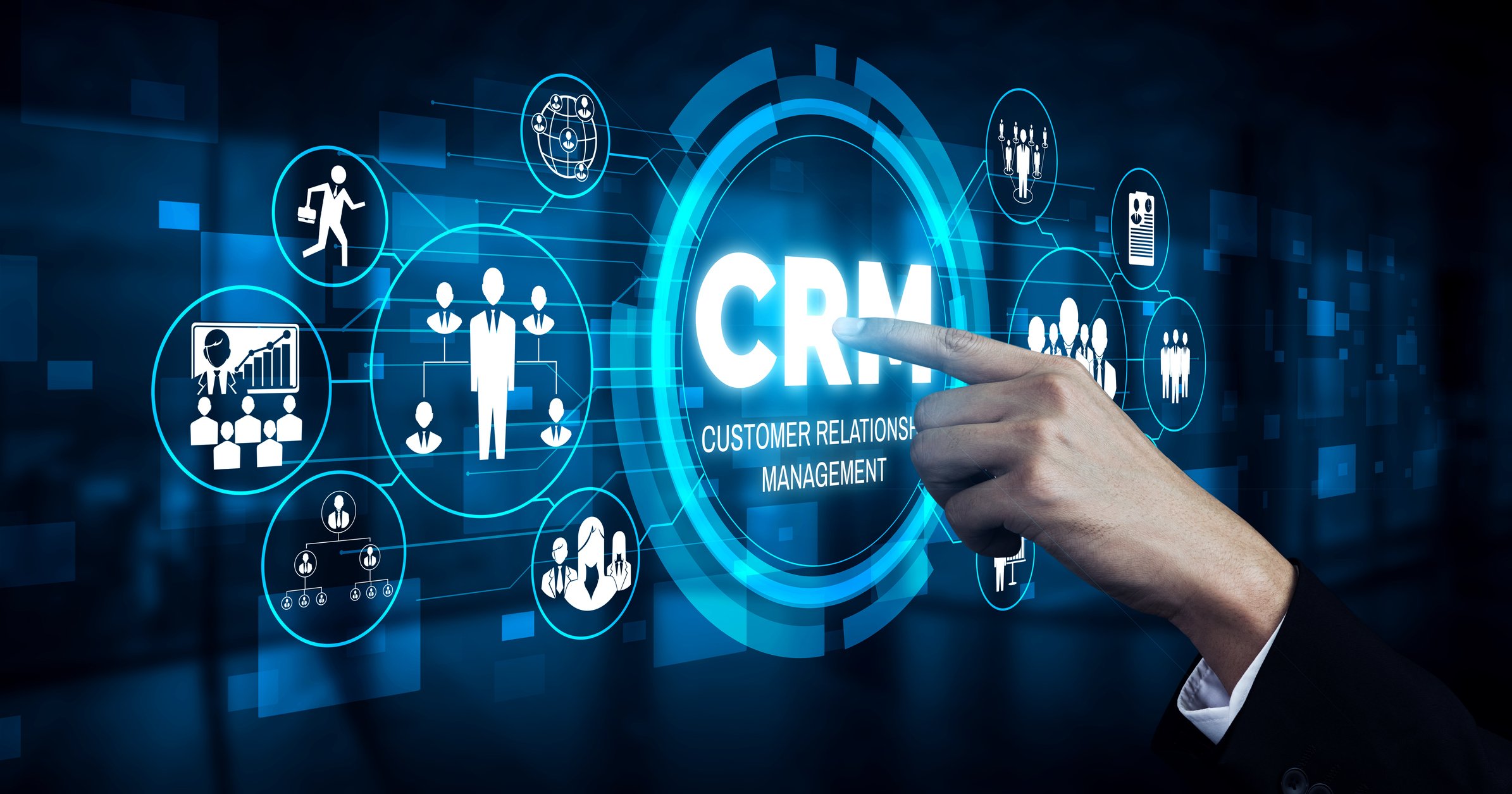CRMs, how can they benefit you?
A CRM, or Customer Relationship Management, platform is a tool that aids businesses with managing communications and history with customers and sales prospects alike. A CRM can be a web-based software or a mobile application, making it accessible from nearly anywhere. CRMs simplify the process of gathering, saving, and analyzing customer data. By utilizing a CRM platform, businesses can heighten their overall effectiveness, improve sales, and increase customer satisfaction.
One of the prime benefits of utilizing a CRM platform is that it offers a centralized location for saving customer data. Meaning all the customer data collected by various business departments (such as sales, marketing, and customer service) can now be stored in one convenient place. This makes it much simpler for businesses to readily retrieve and analyze customer data. This also allows businesses to easily track customer interactions and communications. This wealth of information can then be used to better understand customer behavior, preferences, and needs, and ultimately can lead to more pointed and effective marketing and sales efforts.
As noted in the Forbes article 6 Key Benefits Of CRM For Your Business:
“Many CRM platforms offer data analytics tools that enable businesses to unlock insights that are invisible to the naked eye. You can measure just about anything from customer sentiment and whether you’re meeting their expectations, to your sales team’s performance or how well that last marketing campaign did. These insights can also help businesses more accurately forecast, and take the guesswork out of planning for the future. You can leverage insights about your customers, pipeline, sales performance and forecasts from data analytics tools to decide what product to make next, or how to improve customer service.”
Another benefit of a CRM platform is that it can automate various manual, repetitive tasks. For instance, a CRM can automate tasks such as email marketing campaigns, lead cultivation, and even the scheduling of follow-up communications. This can ultimately save time, reduce the risk of errors, and free up employees to focus on more important tasks. Additionally, the automation of these tasks can help businesses maintain steady communication with customers, which can lead to heightened customer satisfaction and loyalty.
A CRM platform can also provide businesses with valued insights into their sales practices. For example, a CRM can track sales activity, such as inbound and outbound calls and sent and received emails, and a CRM can provide real-time information on sales performance. This data can be used to find areas of strength and weakness in sales procedures, and to make positive adjustments where necessary. Similarly, a CRM platform can provide statistics on the effectiveness of marketing campaigns, which can ultimately help businesses allocate resources more effectively and improve their overall return on investment.
This sentiment is further expressed in the Business.com article 11 Powerful Reasons to Invest in CRM Software, which states:
“You can easily use CRM software to streamline the sales cycle for your company. One of the benefits of CRM software for the sales cycle is the availability of prospect data within its sales reports and dashboards. It also allows a sales rep to manage all their sales contacts, pipelines and deals more efficiently. Both sales reps and managers can turn to the CRM for performance evaluations and a clear picture of the work needed to reach upcoming sales quotas.””
You may of heard of CRMs such as;
There are many options out there, and all have pluses and minuses. Each business may prefer certain functionality or familiarity.
One critical advantage of a CRM platform is that it helps businesses improve relations with their customer base. By utilizing a CRM platform, businesses can easily and regularly communicate with their customers in a personalized and relevant way. This allows businesses to offer customers a handheld experience across all touchpoints, which can lead to heightened customer satisfaction, loyalty, and greater customer lifetime value. In addition, a CRM platform can track customer feedback, which can identify areas for improvement so businesses can make necessary adjustments to better meet customer needs.
Finally, a CRM platform can heighten a business’ overall effectiveness. By automating tasks, offering valued analyses on the sales processes, and encouraging stronger relations with customers, businesses can decrease the time and resources needed to handle customer relationships. This can lead to improved efficiency, better sales, and greater profitability.
As noted, a CRM platform can bring a multitude of benefits to a business. From centralizing customer data, to automating manual tasks, to giving constructive insights into sales processes, a CRM platform can help businesses improve their effectiveness, boost sales, and raise customer satisfaction. If your business is not yet taking advantage of the value a CRM platform can offer, now is the time to consider one to reap the benefits it can bring. Contact ALTAMIT LLC, an industry leading marketing and technology firm, to learn how you can seamlessly implement a CRM platform for your business today. Visit ALTAMIT.net to chat live with an online specialist. Or call (888) 377-ALTA, that’s (888) 377-2582 to speak with a specialist now.
Sign up for our newsletter to be notified when new articles are posted.

